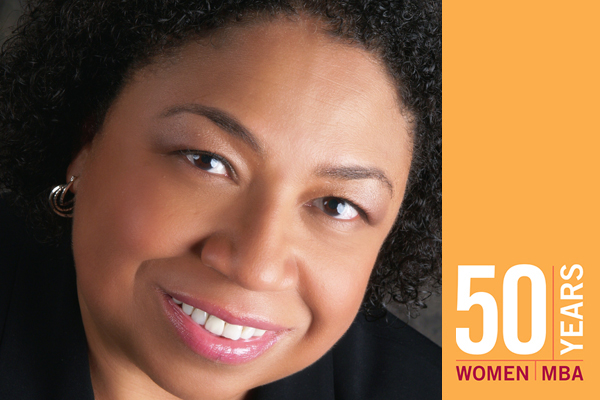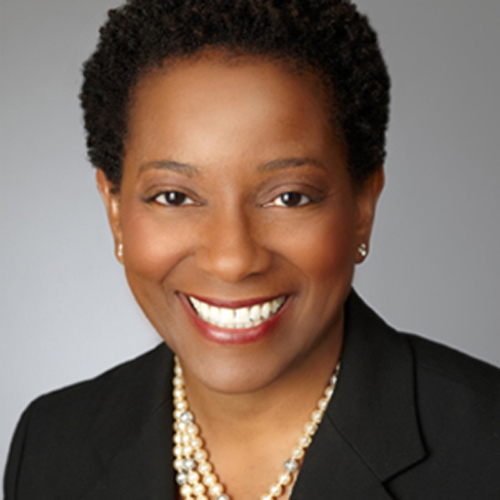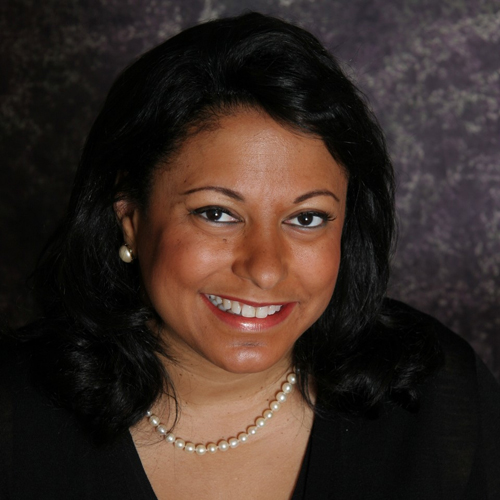
Patricia Taylor
Biography
A professional in government, management consulting, and private industry, Dr. Taylor joined the Office of the Director of National Intelligence (ODNI) on detail from the National Security Agency (NSA) in August 2004 and accepted a permanent position with ODNI in March 2007. She was named Chief of the Office of Intelligence Community (IC) EEO and Diversity in April 2008.
What impact did HBS have on your life and the life of others?
I have fond memories of HBS and recall the experience—before, during, and after—as one of the most exciting, insightful, and frightening transitional periods of my life. Before I was accepted into the program, I suffered a lot of personal turmoil over a few years, including a miscarriage, a divorce, and my mother's passing. I also enjoyed professional success, swiftly climbing the corporate ladder at British Petroleum, jet-setting, and, surprisingly, running into African-American HBS alumni all over the place (Bert King and Lee Trotter were particularly inspiring and encouraging as mentors). It was all part of a lifelong pattern of facing significant challenges while achieving enormous victories, with the lowest lows followed by huge rebounds—just like being on a trampoline.
A little older than most students, I arrived in Boston eyes wide open, ready to go, and slightly nervous. I came away with four invaluable takeaways:
- HBS taught me how to think: No matter what the problem is, you can figure it out. Trust your own instincts.
- HBS taught me how to network. You may not know all of the answers. Knowing the right questions to ask is much better, and knowing who to ask is best of all.
- HBS taught me how to lead. You're not a leader unless people are willing to follow you, whether you are a woman or a man, minority or not. You need vision, direction, empathy, charisma, dedication, and intelligence to motivate others.
- HBS taught me how to give back. I've contributed financially to the B-School as an alum and served as a mentor to HBS applicants (Ray Suarez, who was a member of the HBS African-American Student Union, helped me when I was applying and commissioned me to pay it forward); I've also mentored employees (especially minority and disabled women and men). This has been some of the most rewarding activity of my life.
I worked in information systems consulting and management consulting for a number of years after graduation and then started working for the Federal government. I grew up in a military family, so it came naturally—both grandfathers, both parents, uncles, and cousins served in all branches of the service, and I was in ROTC as an undergrad. It wasn't until later years that it dawned on me that most of my folks served in segregated corps. I've done a lot of research on that topic.
Despite the headlines and recent government shutdown, I would strongly recommend Federal service to HBS grads. When I first chose this path, a lot of my classmates asked why. My response has always been the same—there's no higher calling. Many international students at HBS were funded by their governments and hold senior civil service posts; there's an overwhelming need to apply business practices and discipline in the public sector.
I dedicated my PhD dissertation to my mother and grandmother. My mother was in the first group of African Americans in the Women's Army Corps to go oversees in WWII—a wonderful and brave achievement for any woman at that time, let alone a black woman. She valued education, persistence, and reading. My grandmother taught me the value of faith, prayer, boldness, and a sense of humor. When confronted with adversity at work, she would say, "Now you go back there and tell those folks that you went to Harvard…and it wasn't on a basketball scholarship." I've used that line many times.

